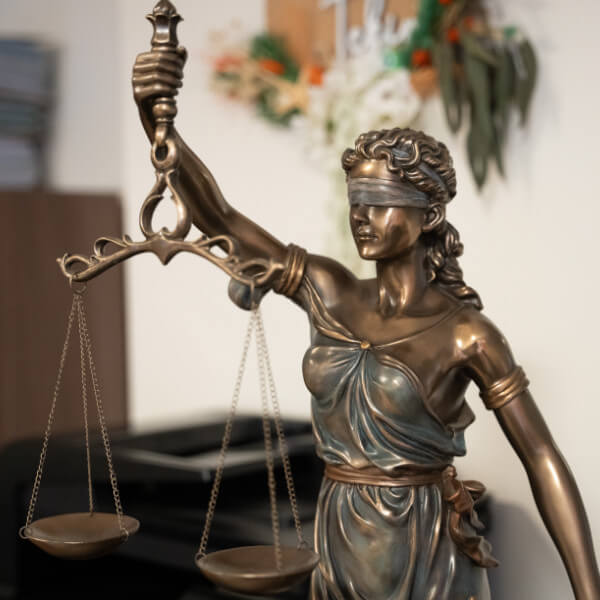When you are in a personal injury case in Georgia, like a car accident or slip and fall, fault can be unclear. Modified comparative negligence stands as one of the most important legal principles that determines who is financially responsible. Georgia uses a specific version of modified comparative negligence. Knowing how it works can greatly impact your case’s outcome.
In this article, we will explain Georgia’s modified comparative negligence law. We will compare it to other rules like pure comparative negligence and contributory negligence. We will also discuss what you must prove to win a negligence claim.
This guide is here to help you understand your rights and duties under Georgia negligence law. It is useful for both plaintiffs seeking compensation and defendants wanting to reduce liability.
If you find yourself involved in a negligence case, you may want to learn about Georgia’s modified comparative negligence law. To get more information, call 1-855-WARRIOR (1-855-927-7467). You can also use our online contact form. Speak with a personal injury attorney at McArthur Law Firm today for a FREE CONSULTATION.
What is Modified Comparative Negligence?
Modified comparative negligence is a legal doctrine used to allocate fault among multiple parties in a personal injury case. Under this rule, a person can still get damages even if they are partly at fault for their injuries. However, this is only true if their level of fault does not go over a certain limit.
Georgia Comparative Negligence Statute
Georgia follows a modified comparative negligence system. This system has a 50% bar rule. It is written in the Georgia comparative negligence law, found in OCGA § 51-12-33.
This law says that the injured party can get damages only if they are less than 50% at fault. If the plaintiff is found to be 50% or more at fault, they are barred from recovering any damages.
Georgia Negligence Law in Practice
Here’s how this could work in real life. Imagine you get hurt in a car accident and you incur $100,000 in damages.
If a jury decides that you were 30% at fault for an accident, they will cut your total compensation by 30%. This means you can recover $70,000. If you hold 55% of the fault, you cannot recover any damages under Georgia negligence law.
This approach shows Georgia’s commitment to fairness. It makes plaintiffs responsible for their part in accident cases. They can still seek compensation if their degree of fault is less than the defendant’s.
What is the Negligence Rule in Georgia?
Negligence is the main idea behind most personal injury claims. Understanding how it works in Georgia is important to recovering compensation.
Georgia Negligence Statute of Limitations
Before diving into legal definitions, it’s important to understand the statute of limitations. In Georgia, you usually have two years to file a personal injury lawsuit after an injury occurs. OCGA § 9-3-33 sets this. Another part of Georgia tort law, OCGA 51-12, often affects how we calculate and share damages based on fault.
If you fail to file within this timeframe, you can face dismissal of your case, regardless of how strong your evidence may be. Therefore, timing is critical in negligence claims.
OCGA 51-12 and Comparative Fault
Georgia’s comparative negligence rules are found in OCGA § 51-12-33. This law explains how fault is assigned and how damages are calculated. This modified comparative fault law requires the court to find the fault percentage for each party. It will then adjust the damages based on these percentages.
This system also impacts non-economic damages, like pain and suffering. The accident victim can reduce these damages by sharing any blame.
What Are the Elements of Negligence in Georgia?
To succeed in a negligence claim, the plaintiff must prove specific legal elements. Georgia follows a standard four-part framework:
- Duty of Care
- Breach of Duty
- Causation (Both Actual and Proximate)
- Damages
These elements must be established by a preponderance of the evidence.
Georgia Code Title 51 Torts § 51-1-17
This section of the Georgia Code Title 51 Torts, particularly § 51-1-17, outlines situations where duties of care arise. Property owners must take reasonable care for lawful visitors. Drivers also need to be careful when operating their vehicles. When a party violates this duty, they may be liable for damages.
Georgia courts often use this statute to determine when a duty exists and when someone breaches it. The specificity of this statute helps define the legal threshold for negligence under Georgia law.
What Are the Three Elements of Contributory Negligence?
While Georgia does not follow a strict contributory negligence rule, understanding this older doctrine is helpful for context. Under contributory negligence, if a jury finds a plaintiff even 1% at fault, the plaintiff cannot recover any damages. This is a much stricter rule than Georgia’s 50% bar rule.
Still, elements of contributory negligence are considered when determining comparative fault:
- Awareness of Risk: Did the plaintiff know of the danger?
- Voluntary Assumption: Did the plaintiff willingly proceed despite the risk?
- Failure to Exercise Reasonable Care: Did the plaintiff’s conduct fall below a reasonable standard?
Georgia uses these elements within its broader modified comparative negligence framework. This connects to ideas like negligence per se. Here, people view breaking a law, such as running a red light, as a breach of duty.
Georgia Joint and Several Liability
Georgia has modified its stance on joint and several liability. In the past, many defendants could be fully responsible for all damages.
This was true even if one defendant was mostly at fault. In Georgia, damages are divided based on how much each party is at fault. This means each defendant only pays for their part.
This change complements the comparative negligence model by ensuring fairness and proportional accountability among all parties involved.
Pure Comparative Negligence: How Georgia Differs
In states like California, under pure comparative negligence, a plaintiff can still get damages. This is true even if they are 99% at fault.
Georgia does not follow this system. The modified comparative negligence rule (with the 50% bar) stops plaintiffs who are mostly at fault from getting damages. This rule balances between a total bar and allowing full recovery.
OCGA 51-12-33 and Apportionment of Fault
As mentioned earlier, OCGA § 51-12-33 is one of the most critical legal provisions in Georgia personal injury cases. This law not only governs comparative fault, but also details how the court must apportion damages among multiple defendants. The statute specifies that:
- The court must determine the percentage of fault of each party, including non-parties (i.e., someone not named in the lawsuit).
- A plaintiff cannot recover if they are 50% or more at fault.
- Each defendant is responsible only for the percentage of damages equal to their share of fault.
This means that if one defendant is 30% liable and another is 20%, each will pay only their respective share—no more, no less.
Navigating Georgia Modified Comparative Negligence
Georgia’s modified comparative negligence law is a cornerstone of its personal injury system. Under OCGA § 51-12-33, if plaintiffs are less than 50% at fault, they can still get damages. However, the amount they receive decreases based on their share of blame. This structure allows for a fair distribution of liability, while discouraging reckless or careless behavior from all parties involved.
Understanding Georgia negligence law is important. This is true whether you want compensation after an accident or if you are defending against a claim.
Key components of Georgia’s negligence law include:
- The statute of limitations under OCGA § 9-3-33
- The elements of negligence under Georgia Code Title 51
- The thresholds for contributory fault
- And the exact role of OCGA § 51-12-33 in apportioning fault and damages
Talk To An Expert in Georgia Personal Injury Law Today!
If you’re facing a legal situation involving negligence, don’t navigate Georgia’s complex legal landscape alone. An experienced personal injury lawyer can help you assess your case. They can also keep important evidence safe and fight for the best result for you.
Contact a qualified personal injury lawyer in Georgia. They can help protect your rights and increase your recovery. Call 1-855-WARRIOR (1-855-927-7467) for a FREE CONSULTATION and guidance on navigating Georgia’s modified comparative negligence laws today!
More Georgia Personal Injury Law Resources
If you want to learn more about Georgia’s personal injury law, check out our articles below. They explain how Georgia’s modified comparative negligence laws can affect your case.











